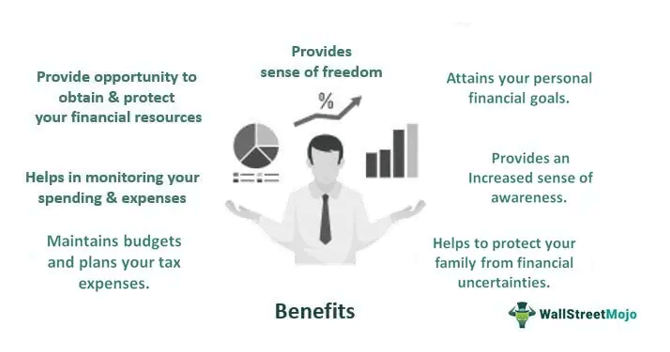Tax Planning 101: A Beginner’s Guide to Personal Finances
When it comes to personal finances, tax planning is an essential aspect that you cannot afford to ignore. Whether you are just starting out in your career or are a seasoned professional, it is important to have a basic understanding of tax planning. By planning ahead and making informed decisions, you can minimize your tax liability and maximize your savings. In this beginner’s guide to tax planning, we will cover the basics of tax planning, including understanding your tax obligations, tax deductions and credits, and strategies for reducing your tax bill.
Understanding Your Tax Obligations
The first step in tax planning is to understand your tax obligations. In the United States, individuals are required to pay federal income tax on their earnings. The amount of tax you owe is based on your income level and other factors, such as your filing status, deductions, and credits.
To determine your tax liability, you will need to complete a tax return each year. The tax return will calculate the amount of tax you owe based on your income and deductions. If you have a job, your employer will withhold taxes from your paycheck throughout the year. The amount of taxes withheld is based on your income level and the information you provided on your W-4 form.
Tax Deductions and Credits
Once you understand your tax obligations, the next step is to take advantage of tax deductions and credits. Tax deductions reduce your taxable income, while tax credits directly reduce your tax liability. Here are some common tax deductions and credits that you may be eligible for:
Standard Deduction – This is a fixed amount that reduces your taxable income. For the 2021 tax year, the standard deduction is $12,550 for individuals and $25,100 for married couples filing jointly.
Itemized Deductions – If you have significant expenses in certain categories, such as medical expenses, charitable contributions, or state and local taxes, you may be able to itemize your deductions. This means you list out all the eligible expenses on your tax return, and the total is subtracted from your taxable income.
Retirement Account Contributions – Contributions to a 401(k), IRA, or other retirement account can reduce your taxable income, which can lower your tax bill. For 2021, you can contribute up to $19,500 to a 401(k) and up to $6,000 to an IRA.
Education Credits – If you paid for higher education expenses, you may be eligible for tax credits. The American Opportunity Tax Credit and the Lifetime Learning Credit are two popular options.
Child Tax Credit – If you have dependent children under the age of 17, you may be eligible for a tax credit of up to $2,000 per child.
Reducing Your Tax Bill
In addition to taking advantage of tax deductions and credits, there are other strategies you can use to reduce your tax bill. Here are a few options to consider:
Contribute to a Health Savings Account (HSA) – If you have a high-deductible health plan, you may be able to contribute to an HSA. Contributions are tax-deductible, and withdrawals for qualified medical expenses are tax-free.
Invest in Municipal Bonds – Municipal bonds are issued by state and local governments and are generally exempt from federal income tax. This means that if you invest in municipal bonds, you can earn tax-free income.
Take Advantage of Tax-Loss Harvesting – If you have investments that have decreased in value, you may be able to sell them and use the losses to offset gains in other investments. This can help reduce your tax liability.
Consider Charitable Contributions – If you donate money or property to a qualified charitable organization, you may be eligible for a tax deduction.
Plan Ahead for Capital Gains – If you sell an asset, such as stocks or real estate, for a profit, you will owe capital gains tax on the amount of the profit. By planning ahead and considering the timing of your sales, you may be able to minimize your tax liability.
In summary, tax planning is a crucial aspect of personal finance that can help you maximize your savings and minimize your tax liability. By understanding your tax obligations, taking advantage of tax deductions and credits, and considering strategies for reducing your tax bill, you can make informed decisions and improve your financial well-being. Remember, tax laws and regulations can change over time, so it is always a good idea to consult with a tax professional or financial advisor for personalized advice.
Final Thoughts
Tax planning may seem daunting, but it is an essential part of personal finance. By understanding your tax obligations and taking advantage of deductions and credits, you can save money and improve your financial well-being. Remember to plan ahead, consider all of your options, and seek professional advice when necessary. With a little bit of knowledge and preparation, you can take control of your taxes and build a brighter financial future.






